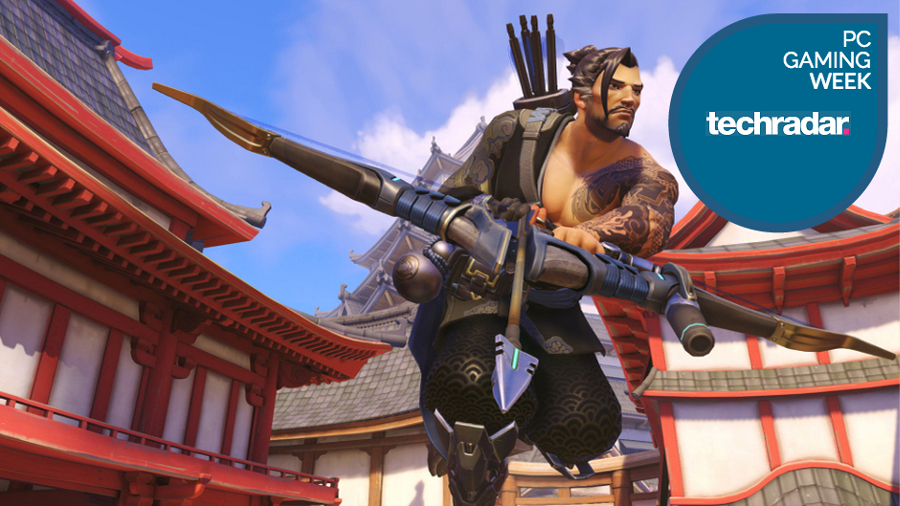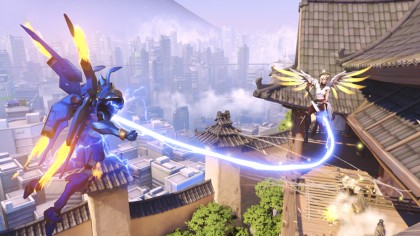Is Blizzard's upcoming shooter Overwatch the next Team Fortress 2?

Sign up for breaking news, reviews, opinion, top tech deals, and more.
You are now subscribed
Your newsletter sign-up was successful
This article was provided to TechRadar for PC Gaming Week by Edge magazine. Follow Edge on Twitter here. Click here for Edge subscription offers.
Everything Blizzard has released since StarCraft all those years ago has been spun off from the 1998 game, 1994's Warcraft or 1996's Diablo.
Sometimes series have jumped genres, notably with World Of Warcraft and the more recent offshoot, Hearthstone: Heroes Of Warcraft, but the new universe of Overwatch feels fresh, even if it sees Blizzard aiming to do what it does best: take the familiar and polish it until it glimmers.
- Check out the rest of our PC Gaming Week coverage
In this case, it's the team-based shooter, with a clean, bright look and an emphasis on welcoming action that resembles one game in particular.
"When I hear Team Fortress 2 comparisons, nothing could be more flattering. TF2 is one of my all-time favourite games," Jeff Kaplan, Overwatch's director, tells us. "I think, though, that as we saw at BlizzCon, people who play the game realise that while there's inspiration from there, it's very different. It's about abilities, the mobility factor, there's elements like the tank characters with their shields, and the team dynamics... It's really its own game."

Winston the moon gorilla
That game is a six-a-side shooter set in a near future where once-retired heroes are returning to continue the fight for the world, the cast ranging from offensive specialists such as the skull-mask-wearing Reaper and cruel sniper Widowmaker to rather more unusual combatants such as Winston, a gorilla from the Moon armed with a Tesla cannon.
In the first of many deviations from shooter convention, the heroes are built along the lines of MOBA characters, with abilities, rather than guns, defining their playstyle. Thus, Winston has a jump pack for getting around, while Widowmaker gets a grappling hook and Reaper has a mark-and-recall teleport for yanking himself out of battle.
Sign up for breaking news, reviews, opinion, top tech deals, and more.
Overwatch isn't a MOBA, though, Kaplan explains. "In Overwatch, you can switch hero with every death. Multiple people on the team can be the same hero. Also, the key feature of MOBAs for me is a progression and PvE element, with things like minions and towers, and we're not focused on any of that."
Instead, Overwatch is intended to push the sense of character and heroics, Kaplan referring to Blizzard's approach as an attempt to be the 'hero factory', in that it's not simply providing characters, but inspiring players to be heroic.
Broad appeal
It's also intended to appeal to everyone, rather than targeting hardcore shooter fans. The aesthetic is part of that, but the ethos runs deeper. The true genius of Team Fortress 2 is that even now, years after release, its audience primarily treats it as a place to have fun, rather than having shrunk into an insular shell. And Kaplan is taking pains to avoid MOBA-like hostility bleeding in here.
"One of the goals of Overwatch is to create a community where players feel safe and where the game itself is very approachable," he says. "Something we learned as a team while making raid encounters for World Of Warcraft in the early days is that the more you place players in a dire situation and ratchet up the importance of individual contributions and the pressure, the more players would turn on each other and make the game unpleasant."